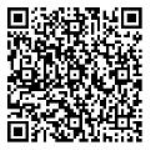【專題:「儒家倫常:禮制與庶民生活」】朝鮮末期知識階層「文明觀」的轉變與對「基督新教」信仰的接受―以《皇城新聞》與「皇城基督教青年會」為中心的討論
作者:王恩美(國立臺灣師範大學東亞學系助理教授)
卷期:59卷第1期
日期:2014年3月
頁碼:63-94
DOI:10.6210/JNTNULL.2014.59(1).04
摘要:
十九世紀末期「西勢東漸」,西方不但在鴉片戰爭擊敗中國,也動搖了東亞原有的世界秩序。日本在甲午戰爭擊敗清朝,更對朝鮮帶來前所未有的衝擊。日本採取「西化」政策而成功崛起,不但完全瓦解「中華秩序」,也代表朝鮮士大夫與儒生等知識階層的「世界」與「文明觀」開始瓦解,不得不接受以西方為中心的「文明觀」與「世界秩序」。在此時期,許多朝鮮知識階層開始接受、信仰「基督新教」,並以此作為接觸西方文明、追求國家近代化的重要媒介與手段。「基督新教」在朝鮮興起並逐漸擴大影響力,實際上代表朝鮮社會「文明觀」的轉變,而甲午戰後,「中華秩序」的崩解,則是「新文明觀」形成的契機。
本文主要討論朝鮮末期知識階層如何因「文明觀」改變而接受及信仰「基督新教」的原因。主要以《皇城新聞》為例,探討中華秩序崩解如何造成知識階層「文明觀」的轉變;同時以「皇城基督教青年會」為例,說明知識階層如何將「基督新教」視為「新文明觀」的象徵,並以接受「基督新教」信仰作為追求近代化文明的手段。由於「皇城基督教青年會」在推動知識階層接受「基督新教」信仰扮演重要角色,因此,也以此團體為例,說明「基督新教」與「新文明觀」兩者的密切關係。
關鍵詞:士大夫、中華秩序、中國認知、開化派
 《詳全文》
《詳全文》

Journal directory listing - Volume 59 (2014) - Journal of NTNU: Linguistics & Literature【59(1)】March (Special Issue: Confucian ethos: Etiquette & Vernacular life)
【Special issue: Confucian ethos: Etiquette & Vernacular life】Changing Perspectives on Civilization and the Acknowledgment of Protestantism by Choson Intellectuals in the Late Choson Period: A Discussion Focusing on the Hwangseong Sinmun and Hwangseong Young Men’s Christian
Author: En-Mei Wang (Department of East Asian Studies, National Taiwan Normal University)
Vol.&No.:Vol. 59, No. 1
Date:March 2014
Pages:63-94
DOI:10.6210/JNTNULL.2014.59(1).04
Abstract:
Because of Western expansion and the defeat of China in the Opium Wars, the regional order of East Asia was disrupted by the end of the nineteenth century. Moreover, the defeat of the Qing Dynasty in the First Sino-Japanese War by Japan was an unprecedented shock to Choson. The rise of Japan following its Westernization indicated the downfall of the Sinocentric order. For Choson intellectuals, namely scholar-bureaucrats and Confucian scholars, the event also signified the collapse of their perspectives on the world and civilization. Subsequently, they complied with the Western-centered civilization and world order. During this period, numerous Choson intellects began accepting and converting to Protestantism, considering it as an essential medium and a means for connecting with Western civilization and modernizing the country. Furthermore, the widespread and increasing influence of Protestantism in Choson indicated a change in the perspectives held by Choson society, whereas the downfall of the Sinocentric order after the First Sino-Japanese War provided the window of opportunity for the formation of new perspectives on civilization.
The present study focused on how the change in perspective on civilization caused Choson intellectuals to acknowledge and convert to Protestantism in the late Choson period. By analyzing Hwangseong Sinmun (Empire Town Seoul News), the manner in which Choson intellectuals changed their perspectives on civilization when faced with the overthrow of the Sinocentric order was investigated in this study. By analyzing the Hwangseong Young Men’s Christian Association (YMCA Seoul), this study revealed how Protestantism was deemed as a symbol of the new perspective on civilization and how it was acknowledged as a means to pursue modernization. Because of the vital role of the Hwangseong Young Men's Christian Association in the acceptance of Protestantism by Choson intellectuals, the organization was used as an example to illustrate the close relationship between Protestantism and the new perspectives on civilization.
Keywords:scholar-bureaucrat, Sinocentric order, perception of China, Progressive Party